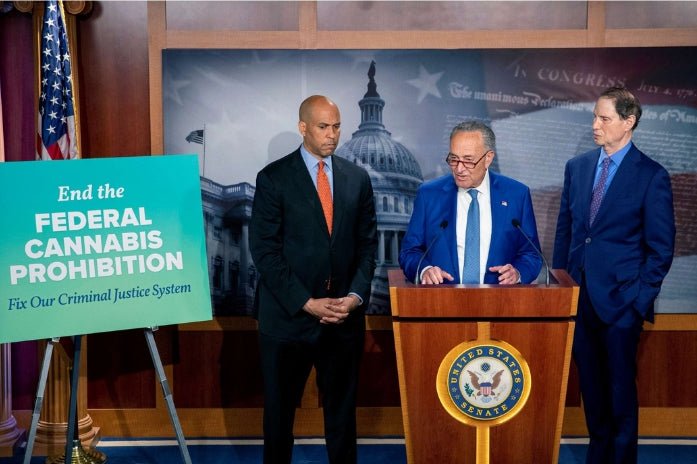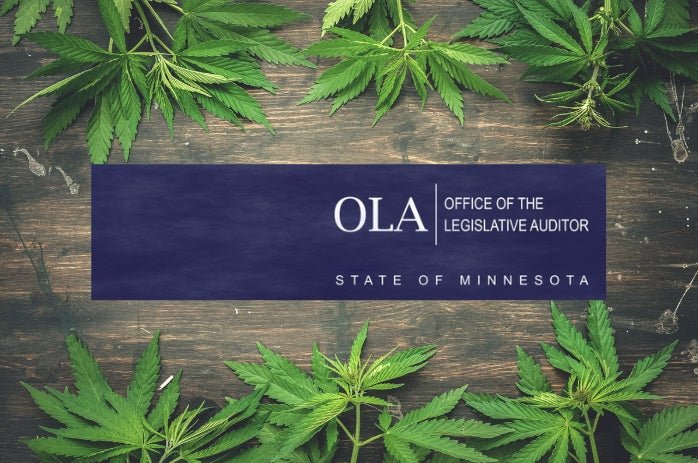The new survey reveals a path for Biden to secure a second term by pushing forward on marijuana rescheduling before the November election.

It may still be only January, but for many Americans, November and the 2024 Election Day are just a few short months away. An election that could see former President Donald Trump win an unbelievable second term or President Biden become the first chief executive to retain the office in his middle 80s successfully.
According to a new poll by a Democratic research firm, that uncertain and yet historically significant outcome could depend, in large part, on cannabis. Yes, the once much-maligned, vilified, and wholly misunderstood flower is now one of the most popular, polarizing, and politically vital items and issues in modern American electoral history.
The new survey conducted by Lake Research Partners revealed several key findings concerning the attitudes of registered voters concerning marijuana, most notably that President Biden could potentially increase his favorability rating among young voters by as much as 11% by simply ensuring that cannabis is moved from Schedule I to Schedule III on the Controlled Substances List—a recommendation made by his Department of Health and Human Services (HHS) late last year.
Researchers interviewed 900 likely voters via phone calls and text-to-online outreach. The poll also includes oversamples of younger voters and voters from battleground states, with 100 voters aged 18 to 25 and 200 voters from the hotly contested states of Arizona, Georgia, Michigan, North Carolina, Nevada, Pennsylvania, and Wisconsin.
The interview questions centered generally on whether or not cannabis should be rescheduled, with 58% of participants supporting the scheduling move and 19% opposing the change. The positive response to rescheduling cannabis cut across all demographic lines, as no more than one-third of voters in any major subgroup openly rejected the proposed move.
What stood out the most for researchers was the intense support among younger voters for the politically polarizing issue. According to the responses, 65% of young voters aged 18 to 25 approve of the scheduling change, with close to half of those responding indicating they strongly support the proposed move.
Surprisingly, older voters also want to see cannabis reclassified from a Schedule I narcotic to the less restrictive and dangerous list of Schedule III drugs. Senior voters approve the change by a whopping double-digit margin, meaning Boomers and Gen Z-ers do, on occasion, see eye-to-eye on specific galvanizing topics.
From a political orientation standpoint, the results were less surprising. Democrats and Independents approve rescheduling by substantial margins (74% to 7% for Dems and 55% to 15% for Independents), while Republicans remain somewhat divided on the issue (41% to 31%).
One of the most fascinating results from the survey concerns President Biden’s role in all of the rescheduling discussions. Two-thirds (66%) of respondents indicated that Biden should approve the recommendation from the HHS, with the youngest voter block (the coveted 18 to 25 age range) overwhelmingly in support of the scheduling change (84%).
The findings were so positive that “By the end of the poll, impressions of Biden improved by a net double-digits — an 11-point swing overall, including a double-digit (+11-point) swing among younger voters,” the survey notes.
"By the end of the poll, impressions of Biden improved by a net double-digits — an 11-point swing overall, including a double-digit (+11-point) swing among younger voters."
- Research Findings from Lake Research Partners on Cannabis Rescheduling
Overall, researchers found that the only wrong move to be made by lawmakers, policy influencers, and the White House concerning cannabis would be to not reschedule the plant from Schedule I to Schedule III, particularly as it relates to the voting preferences of young Americans.
“In conclusion, rescheduling cannabis is not only the right move from a policy perspective, it is also politically helpful. Nowhere is this more true than for younger voters—one of the most cross-pressured groups of voters, and also the most sanguine about rescheduling,” the researchers conclude.
"In conclusion, rescheduling cannabis is not only the right move from a policy perspective, it is also politically helpful. Nowhere is this more true than for younger voters—one of the most cross-pressured groups of voters, and also the most sanguine about rescheduling."
- Research Findings from Lake Research Partners on Cannabis Rescheduling
Ultimately, the U.S. Drug Enforcement Agency (DEA) has the final say in whether or not to reschedule marijuana. It is currently reviewing the recommendation, with no specific timeframe for when it will make its final decision.
However, industry advocates, stakeholders, and political insiders believe agency officials will follow the HHS’ proposal. And if this most recent poll is any indication of future behavior, President Biden would be wise to quickly and passionately throw his support not only behind rescheduling cannabis but ending prohibition altogether.








































